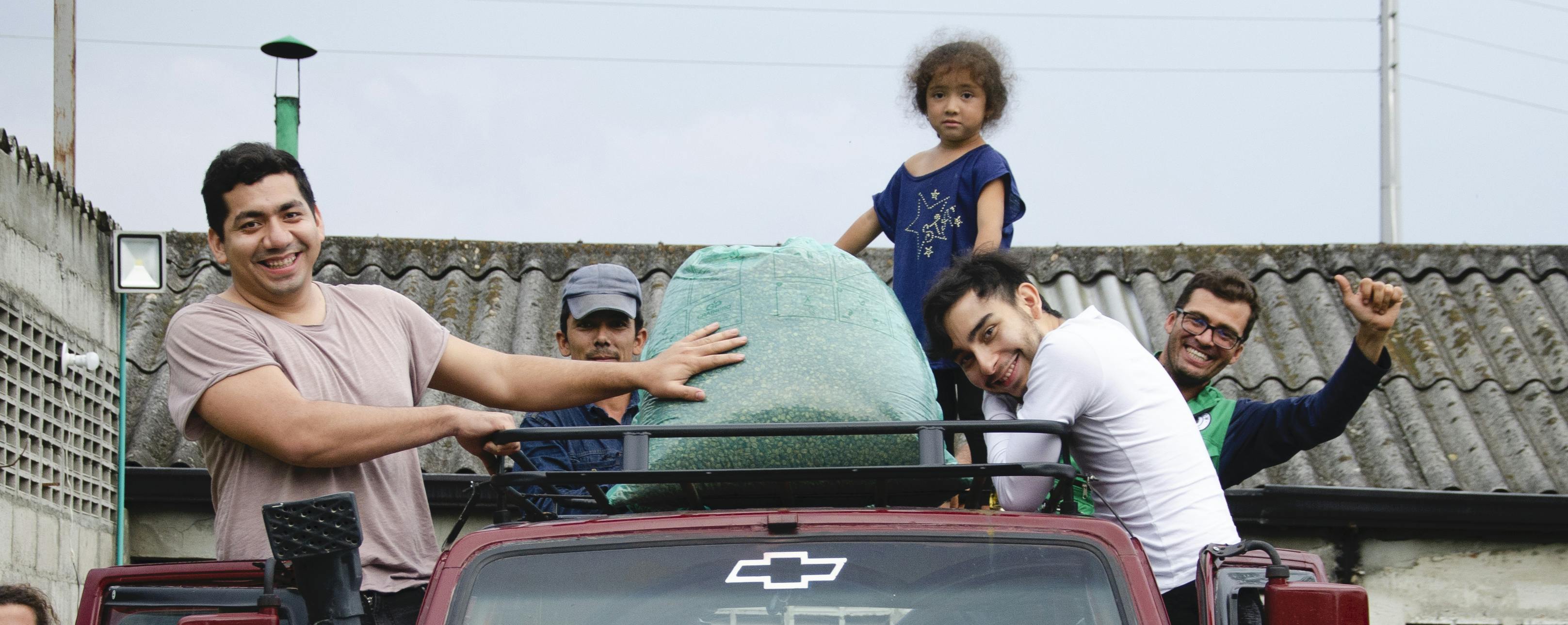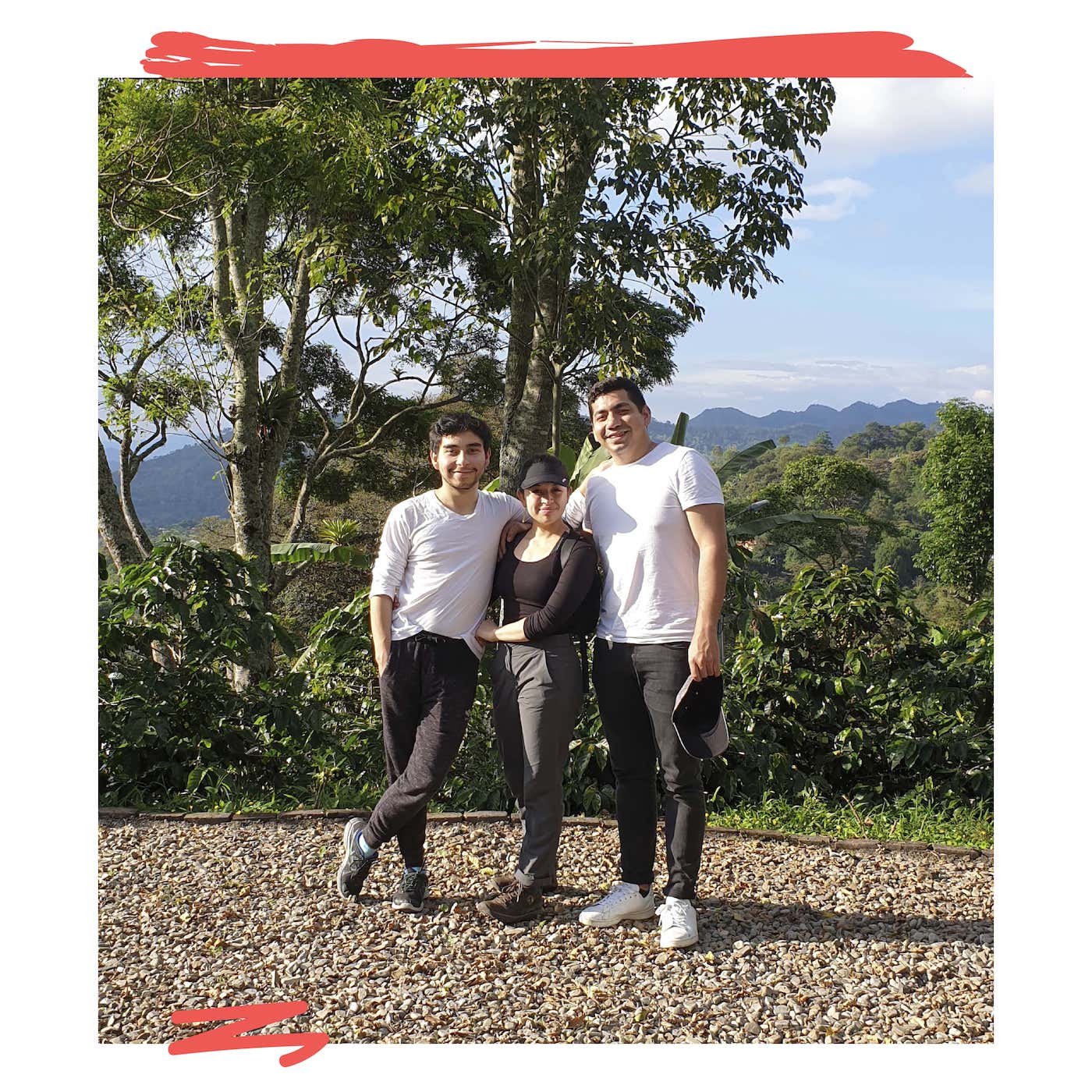Entrepreneurship
Lessons from my fist startup
5 min

The Arjé Team collected a batch of coffee. In the photo, there's David, myself, and some coffee farmers. María Angélica was the one who took the picture :)
Arjé Coffee was the first legally established company of which I was a founding partner, along with Maria Angélica Moya and David Delgado. In the past, I had different ways of "starting a business," but none were as formal. Although Arjé is no longer around, it left me with many lessons that, no matter how much I read in books and blogs, are the kind of lessons you don't learn until you experience them.
Launch quickly, fail quickly, iterate, and repeat.
With Arjé, we had the first part clear; it took us less than two months from winning the Angel Hack with the initial idea to launching the first box in the market. However, being a product with boxes (the minimum order was 500) and packaging (which required importing considerable quantities for cost efficiency) and other reasons, it was challenging for us to iterate, dare to experiment, and try different things with the product. This somehow left us wondering, "What would have happened if...?" To avoid that, you must dare to innovate without fear of success. You must seek alternatives to make the product and its evolution more flexible. Sometimes, one believes the idea is perfect, but the key is refining it in each iteration.
The early customers are the most important.
María Fernanda Zúñiga and John Alexis Guerra Gómez gave us this phrase. They are two experts who generously shared their valuable time to provide us with feedback a few weeks before an interview with Y Combinator. They made us realize that the early customers are the ones who trust us unthinkingly. They have no references, nothing. Despite this, they decide to try us out. These "early birds" are the ones we should try our best to retain and cater to. If they trusted us first, we must know why and how to keep them.
Ideas belong to those who execute them.
Initially, I had a closed mindset regarding ideas, and I found it challenging to share them. After Startup School (where we had to explain our concept to strangers from different countries every eight days), I learned that talking about ideas helps gauge how others perceive them. Depending on the person, it can even help complement the concept or provide an important contact to make it work. It all depends on the context.
The team is everything.
Cuando se trata de equipo es indispensable tener personas que manejen las áreas de negocio, en nuestro caso eran café y software. Afortunadamente di con un equipo inigualable. De no haber sido por la experticia de María Angélica en café, UX y diseño y el basto conocimiento de David en Software, backend, historia, ciencias, etc, no habría sido posible lograr lo que hicimos. De hecho en entrevistas como las de Y Combinator es algo que tiene un peso brutal. Evalúan la capacidad del equipo, esto porque en caso de pivotear o cambiar el enfoque de la idea, el equipo debe estar en capacidad de responder. Espero que en una próxima oportunidad se crucen nuestros caminos con alguna otra idea para mejorar y cambiar el mundo.
Regarding the team, I would like to point out that having people who handle the business areas is essential. In our case, it was coffee and software. Fortunately, I found an unmatched team. Without María Angélica's expertise in coffee, UX, and design, and David's extensive knowledge in software, backend, history, sciences, etc., it would not have been possible to achieve what we did. In fact, this aspect carries significant weight in interviews like the one with Y Combinator. They evaluate the team's ability because, in case of pivoting or changing the focus of the idea, the team must be capable of responding. I hope that in a future opportunity, our paths will cross with another idea to improve and change the world.
Opportunities don't disappear; someone else seizes them.
This last lesson is mainly related to the Y Combinator interview. Having the interview was a tremendous opportunity, and although things didn't work out, we gave it our all. We grew by 400% in two weeks by implementing referral programs, email marketing strategies, advertisements, word of mouth, and everything! Another person had the opportunity, but we gained experience for the following interview.

These are just five of many more lessons that Arjé left in my life. Many of them can be applied to both professional and personal life. Arjé, in addition to the lessons, left me with many experiences, personal and professional growth, an extraordinary relationship with Maria Angélica and David, a change of mentality, and that spark of entrepreneurship. Now I see each problem as a possible opportunity; I think of possible solutions in a much more structured way, applying what I have learned. So if you are reading this, it is a sign to give life to that idea that has been in your head for a while; the worst that can happen is that you will have many lessons to learn. No fear of success!